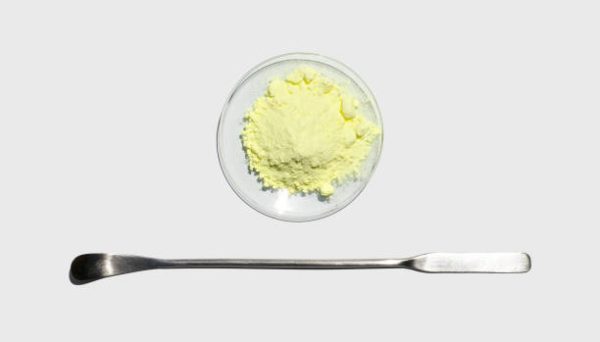When you think of sulfur, the first thing that probably comes to your mind is a smell like rotten eggs. What you might not realize, however, is that sulfur powder is actually used in many products in medicine, agriculture, and manufacturing. Sulfur, sometimes called sulphur, is a yellow chemical element that gives off a strong, unpleasant odor.
Since ancient times, sulfur has been used to treat certain diseases. It is used for cleaning properties in the treatment of infections. Other medical uses include killing parasites such as lice and fleas, treating skin problems such as scabies and dermatitis, and treating bacterial infections. Sulfur drugs are available in lotions, ointments, creams, and soaps. Oral medications, called sulfonamides, are taken in tablet or syrup form.
Sulfur powder is an essential substance for plant growth and development. Most of the sulfur in the U.S. is used to make sulfuric acid, and about three-quarters of it is used in fertilizers, according to the journal Chemistry. Plants are sprinkled with sulfur powder as an insecticide. Agricultural sulphur is produced in the form of mobile sulphur for use in grape crops. Wettable powders can be applied by dusting or spraying plants. Spraying sulfur is also a fungicide.
Sulfur powder is used in industry to make many products. For example, it is used to make tires. Sulfur is added during manufacturing to harden the rubber and prevent it from melting at high temperatures. Other rubber products include latex gloves, pencil erasers and car bumpers. Sulfur powder is used to make matches, adhesives, synthetic fibers, paper products, plastics, water treatment chemicals, and batteries, among other common items.
Industrial sulphur powder has an ignition temperature of about 190 degrees Celsius and can explode when the sulphur comes into contact to create a dust cloud. Additionally, static electricity from particles can cause fires. Store in a well-ventilated area to reduce the risk of fire or explosion. Although sulfur is not toxic by inhalation or ingestion, it can irritate your eyes, skin, and lungs. For your safety, wear personal protective equipment such as goggles and a respirator when working with sulfur powder.

